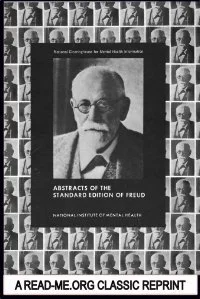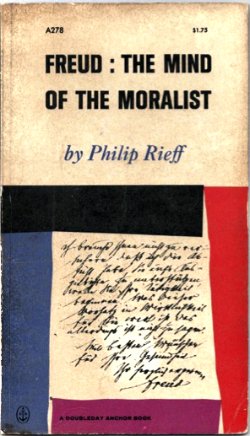By Sigmund Freud. Translated By James Strachey
From the introduction: “The contrast between individual psychology and social or group psychology, which at a first glance may seem to be full of significance, loses a great deal of its sharp. ness when it is examined more closely. It is true that individual psychology is concerned with the individual man and explores the paths by which he seeks to find satisfaction for his instinctual impulses; but only rarely and under certain exceptional conditions is individual psychology in a position to disregard the relations of this individual to others. In the individ- ual's mental life someone else is invariably involved, as a model, as an object, as a helper, as an opponent; and so from the very first individual psychology, in this extended but entirely justifiable sense of the words, is at the same time social psychology as well.”
NY. Bantam. 1960. 126p. CONTAINS MARK-UP











